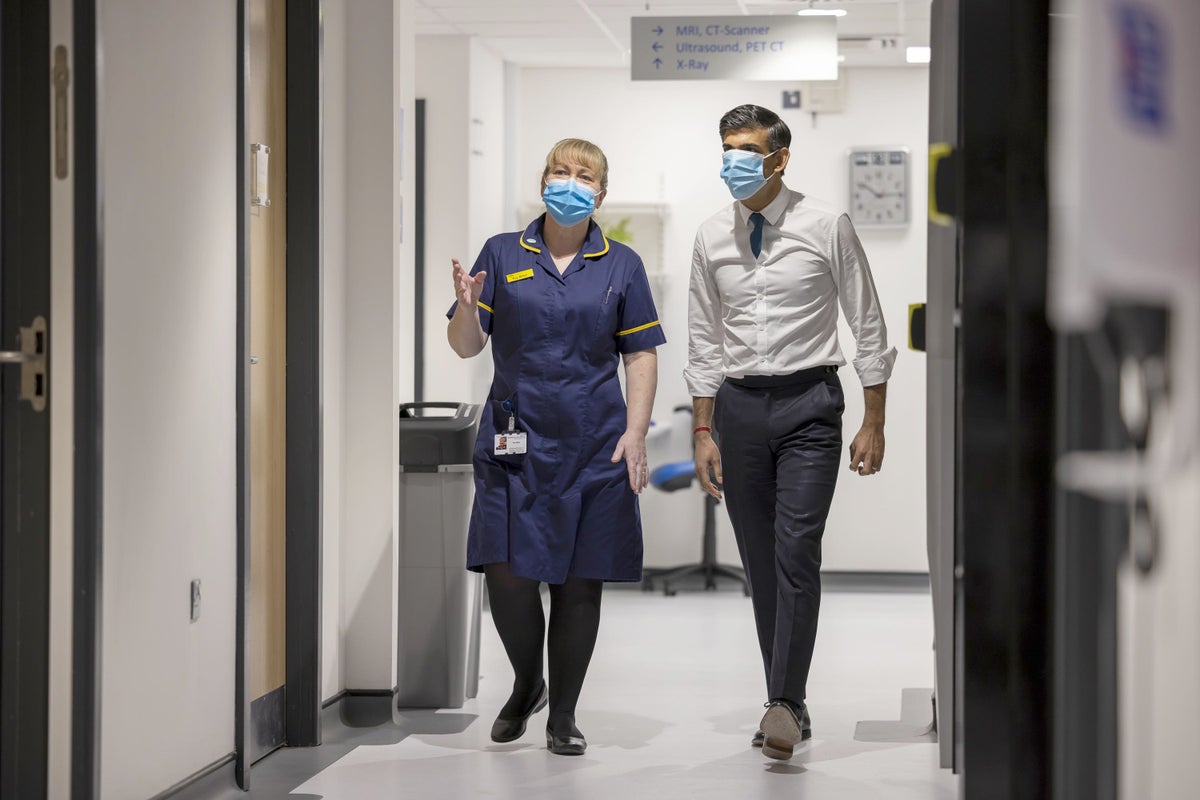
The Government must be wary of “longer-term and unintended consequences” of leaning on private sector capacity to tackle NHS waiting lists, experts have said.
The Department of Health and Social Care (DHSC) announced plans to open 13 new community diagnostic centres (CDCs) in England, which will carry out an additional 742,000 scans, checks and tests per year once up and running.
Eight of the sites will be operated by the private sector, though will remain free to patients, while five will be NHS-run.
The initiative has been largely welcomed by industry organisations, but some said it is “only one part of the equation” when it comes to addressing issues in the health service.
This scheme will need to be carefully designed to make sure that the NHS is not simply left with the most complex cases without the right staff or capacity to deal with them— Helen Buckingham, Nuffield Trust
Nuffield Trust director of strategy Helen Buckingham said collaboration between the NHS and the private sector is “necessary” but “longer-term and unintended consequences” must be considered.
“This scheme will need to be carefully designed to make sure that the NHS is not simply left with the most complex cases without the right staff or capacity to deal with them.
“The payments for independent providers will also need to be carefully thought out.
“History tells us that when the Government looks to ‘off balance sheet’ solutions to the NHS’s dire need for investment in equipment and physical infrastructure while keeping within capital spending limits, this puts more pressure on the revenue budget which is intended for current expenditure on costs such as staffing, drugs and fuel.
“Waiting times for tests, scans and results were growing before the backlogs caused by the pandemic, fuelled by growing demand, lack of investment in new equipment and shortages of trained specialists.
Ongoing industrial action is having a big impact on the ability of the NHS to get through the backlog, and there has been confirmation that waiting time ambitions are now being reduced to reflect the impact of ongoing strikes— Sally Warren, The King's Fund
“While more independent sector involvement will help boost capacity quicker, it does not fix the root of the issue or provide the NHS with the resources it needs to meet the demand on it for the longer-term.”
Figures released last month showed NHS waiting lists were at a record high of 7.47 million at the end of May.
Sally Warren, director of policy at The King’s Fund, said the Government’s aim to bring them down “look less and less achievable”.
“Ongoing industrial action is having a big impact on the ability of the NHS to get through the backlog, and there has been confirmation that waiting time ambitions are now being reduced to reflect the impact of ongoing strikes,” she added.
“This underlines how staffing issues make or break almost any target set for the service.”
It's vital that an increase in diagnostic capacity is matched by increased capacity across the health and care system to deliver the treatments patients need once diagnosed— Saffron Cordery, NHS Providers
Last month Prime Minister Rishi Sunak said NHS strikes, which have been ongoing since December 2022, were making it “more challenging” to tackle waiting lists.
Junior doctors will strike for another four days on August 11, weeks after their historic five-day walkout in July. Consultants will also strike for two days from August 24.
Ms Warren added that the impact of the new CDCs will be “limited” unless other key issues in the health system are addressed including the “workforce crisis”.
Saffron Cordery, deputy chief executive of membership organisation NHS Providers, said trusts will “welcome additional support” but the initiative “must form one part of a bigger solution as the NHS bears down on waiting lists”.
She added: “It’s vital that an increase in diagnostic capacity is matched by increased capacity across the health and care system to deliver the treatments patients need once diagnosed.”
Health Secretary Steve Barclay said making use of the private sector will “offer patients a wider choice of venues to receive treatment and in doing so diagnose major illnesses quicker and start treatments sooner”.







